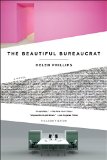Reading Guide Questions

Please be aware that this discussion guide will contain spoilers!
- The first sentence of the book is both striking and vague: "The person who interviewed her had no face." How do you feel this sets the tone for the rest of the book?
- When the waitress first introduces her fortune-telling ability to Josephine, Josephine is too polite to tell her that "she and Joseph didn't believe in fortunes." What do you think ultimately shifts Josephine's perspective to the point that she takes seriously the fortune Hillary bestows upon her in Chapter 10?
- Food is a theme throughout the novel: from the diner pancakes and Joseph's pasta to Josephine's cheese sandwiches and the pomegranate. How do you think Helen Phillips uses food to set a mood or tell us something about Joseph and Josephine and the world she has created?
- Wordplay is Joseph and Josephine's "favorite kind of coincidence," and Josephine deconstructs words with more frequency as her job and life become more unreliable and frightening. Did the emphasis on wordplay cause you to read the rest of the words in the novel differently? Were you more likely to notice
the author's choice of language as the story progressed? How does that wordplay allude to the greater themes of the novel?
- Joseph and Josephine are set up in the beginning as mirrors of each other—they have different versions of the same name, they obtain similar bureaucratic jobs, and they share a sense of humor. Did you find that setup to remain true over the course of the book? Why or why not?
- When Josephine's hunt for a vending machine introduces her to a coworker, she is surprised "Because this bureaucrat reminded her so much of herself: the same sagging cardigan and sensible shoes, the same average height and average weight and unremarkable face…" What is the significance of the detail that every female bureaucrat looks exactly like Josephine? What symbolic role, in this world, does the vastly different Trishiffanny play?
- Joseph and Josephine rarely interact with friends or other people outside of their jobs. How does this lack of friends contribute to the atmosphere of the book?
- The closest thing Josephine has to friends are her coworker Trishiffany and Hillary, the waitress. How are these two women different? How are they similar? What different options might they represent for the problem of how to navigate the challenges of work and life? Do they provide Josephine with solace or cause tension?
- The city in the book has no name. Did you imagine a particular city, or did the setting seem more otherworldly than real?
- Josephine's office is in doorway Z and Joseph's in doorway A. What operations do you think occur at the doors behind the other letters?
- Who is the Man in the Gray Sweatshirt?
- Throughout the book we are constantly reminded of Josephine's physical strain: her eyes are bloodshot, she perpetually has paper cuts, her skin is dry. Do you believe that this was mostly due to the physical reality of her job, the symbolic reality, or her own depression and fear? How does Josephine's skin parallel the trajectory of the story?
- Josephine is perpetually amused by coincidences in the names on the files she inputs in the Database. Aside from taking on a grimmer significance after the her employer's secret purpose is revealed, what does this amusement say about her character? About the world of her office?
- Josephine thinks fondly of "the hinterland" that she and Joseph have escaped. Why do you think they don't consider going back?
- Joseph and Josephine's sublets become increasingly worse with time: the rotting, dingy apartment; the dank basement apartment; the apartment full of plants. What does each one mean? And what, if anything, do you think the author might be looking to convey about work, city life, and the physical spaces we inhabit?
- What is the meaning of the perspective shift in the novel's closing lines? How did it make you feel?
Unless otherwise stated, this discussion guide is reprinted with the permission of Picador.
Any page references refer to a USA edition of the book, usually the trade paperback version, and may vary in other editions.

 Book Reviewed by:
Book Reviewed by:



